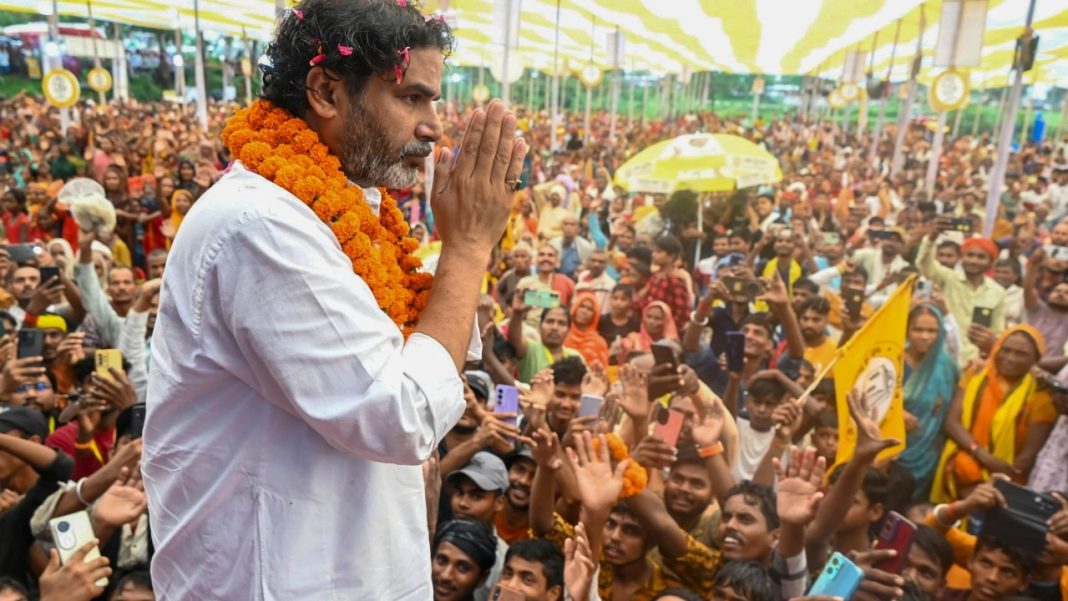Prashant Kishor. The name itself conjures images of strategic brilliance, the architect behind numerous successful political campaigns for India’s biggest parties and leaders. From Narendra Modi’s 2014 Lok Sabha triumph to Nitish Kumar’s Bihar victories and Mamata Banerjee’s resilience in West Bengal, Kishor’s track record as a political consultant has been formidable. After years of shaping narratives from behind the scenes, Kishor announced his direct foray into active politics, pledging to create a “new and better Bihar” through his movement-turned-party, Jan Suraaj. This shift from strategist to politician was met with immense anticipation, particularly given Bihar’s complex and often volatile political landscape.
The stage was set for a political disruption, a fresh alternative to the established parties that have dominated Bihar for decades. Prashant Kishor’s vision for Jan Suraaj promised a focus on local issues, clean governance, and a departure from the traditional caste and identity-based politics. However, as the initial dust settles on its nascent political journey, the immediate electoral impact has presented a stark reality check. Despite the significant buzz and extensive groundwork, Jan Suraaj has, in its Bihar debut, registered a ‘zero score’ in terms of tangible electoral wins or significant vote share, prompting critical questions about the viability of its ambitious project.
The Grand Vision: Prashant Kishor’s Jan Suraaj Yatra
The genesis of Jan Suraaj lies in a mammoth, approximately 3,500-kilometer ‘padyatra’ (foot march) across Bihar, initiated by Prashant Kishor in October 2022. The objective was clear: to engage directly with the masses, understand their grievances, and build a grassroots movement for change. Kishor positioned Jan Suraaj not merely as another political party but as a platform for citizens to reclaim their political agency and advocate for issues pertinent to their lives – education, healthcare, employment, and agricultural development.
This extensive march, reminiscent of Mahatma Gandhi’s movements, generated considerable media attention and public curiosity. Kishor, through his dialogues and public meetings, meticulously articulated his critique of Bihar’s persistent underdevelopment, attributing it to decades of misgovernance by successive political regimes. The narrative spun by Jan Suraaj was compelling: Bihar needed a fundamental shift, a movement that transcended traditional political affiliations and offered a solution-oriented approach. The eventual registration of Jan Suraaj as a political party in July 2023 was the logical next step, signaling Kishor’s readiness to translate public sentiment into electoral power.
Bihar Debut: A Reality Check
The true test for any political entity, however, lies in the ballot box. While Jan Suraaj, as a formally registered party, has yet to contest a major state assembly election under its own symbol, its initial forays and the performance of candidates informally associated with or ideologically aligned with its philosophy in various local polls and by-elections have provided the first indications of its electoral standing. And these indications have been largely disheartening, leading to the perception of a ‘zero score’ in its immediate electoral impact. No significant wins have been secured, nor has a substantial vote share been garnered in any contested area to suggest an imminent breakthrough.
This lack of immediate electoral success underscores the immense challenges inherent in Bihar’s political landscape. Voter loyalty, often deeply entrenched in caste equations, religious affiliations, and established party structures, proves formidable for any new entrant. The machinery of major parties – their dedicated cadres, financial muscle, and extensive reach – is difficult to counter, especially for a nascent organization. “Bihar’s politics is a different beast altogether,” observes a Patna-based political analyst. “A padyatra creates awareness, but converting that into votes requires a robust party structure, sustained campaign funding, and, crucially, a credible face that can cut across traditional vote banks. Prashant Kishor is a known name, but Jan Suraaj still needs to establish deep roots at the booth level.”
Challenges Ahead and the Road Less Traveled
The ‘zero score’ on its Bihar debut, while perhaps not unexpected for a party still in its infancy, presents a significant hurdle for Prashant Kishor and Jan Suraaj. It highlights the chasm between public engagement through a movement and the intricate demands of electoral politics. For a party founded on the promise of an alternative, the inability to register immediate electoral success risks eroding the initial enthusiasm and credibility. The challenge now is to demonstrate resilience and a long-term strategy that can navigate Bihar’s complex socio-political currents.
Moving forward, Jan Suraaj will need to focus on converting its aspirational narrative into tangible local impact. This could involve building a strong organizational network from the ground up, identifying and nurturing local leadership, and potentially forming strategic alliances. Prashant Kishor’s journey from a political strategist who engineered victories for others to an active politician aiming to secure his own mandate is proving to be a much tougher expedition. The road to political disruption in a state like Bihar is long and arduous, and Jan Suraaj’s true test will be its ability to learn from this initial setback and adapt its strategies for the battles ahead.




